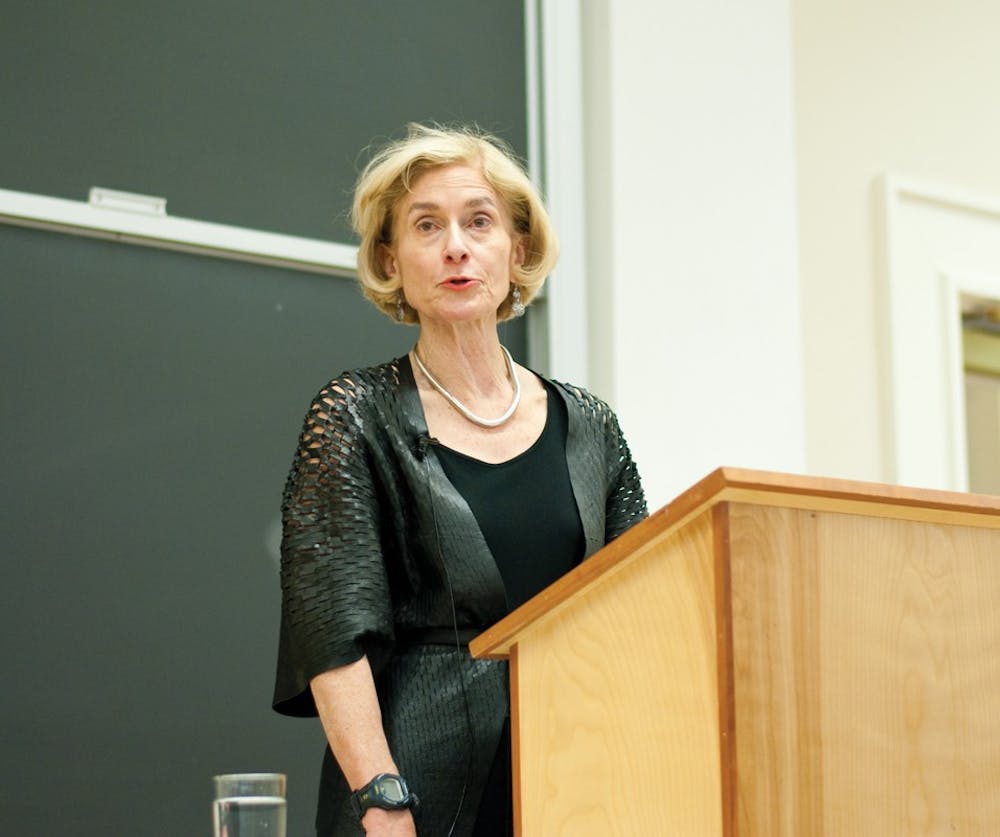Renowned philosopher Martha Nussbaum addressed a packed auditorium Friday afternoon, berating Western Islamophobia, a problem Nussbaum said continues to plague the country today.
“Once, not very long ago, Americans and Europeans prided themselves on their enlightened attitudes of religious toleration, although everyone knew that the history of the West has actually been characterized by intense religious animosity and violence,” she said.
Nussbaum, a service professor of law and ethics at the University of Chicago, said blatant legislative discrimination against Muslims in the United States, France, Belgium, Germany, and Spain, among other countries, requires examination.
“Our situation calls urgently for critical self examination as we try to uncover the roots of ugly fears and suspicions that currently disfigure all Western societies,” Nussbaum said.
Seventy percent of Oklahoma voters in 2010 opted to pass an amendment to the state’s constitution that singled out Shariah Law — the moral code of Islam — as something Oklahoma courts would not be influenced by.
Shariah law regulates Muslim personal conduct and provides rules on alcohol consumption, dietary practices, prayer and codes of honesty in business dealings.
The amendment, approved by voters, was ultimately struck down as unconstitutional, and never went into effect.
The measure mirrors other recent U.S. attempts at religious intolerance.
Nussbaum shed light on a proposed Tennessee law that would have criminalized the practice of Shariah law with a felony punishable up to 15 years in jail. A rewritten version of the bill that did not expressly reference Islam or Islamic law, but did still carry criminal penalties, eventually passed.
In addition, U.S. Muslim women have experienced harassment because of their personal choice to wear the hijab and burka, Nussbaum said.
A female Moroccan hostess who worked at Disney Land’s Grand California Hotel is suing Disney for the right to wear her head scarf during work. Her supervisors allegedly told her the head scarf went against the “Disney look” and that she would have to take a job outside of the view of customers if she wished to continue wearing it.
“What I favor in the undergraduate curriculum is that everyone should have some knowledge of the major world religions,” Nussbaum said. “So I think we’re lucky in a sense that we have more opportunities for this kind of intervention to learning and conversation.”
The University’s 15-month-old Institute of Humanities and Global Cultures sponsored the talk to enrich its program aimed at providing the structure for graduate students and faculty to further their work in the humanities.







